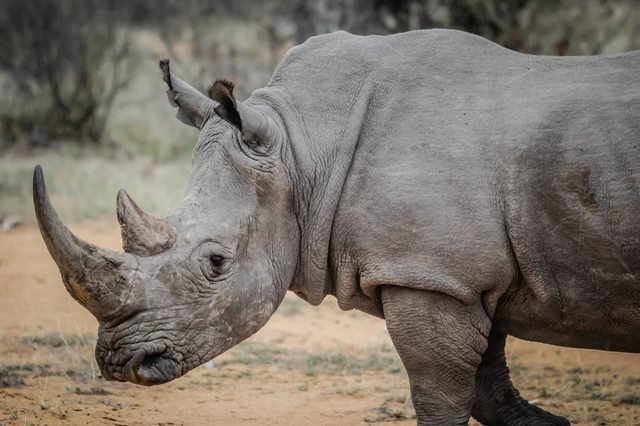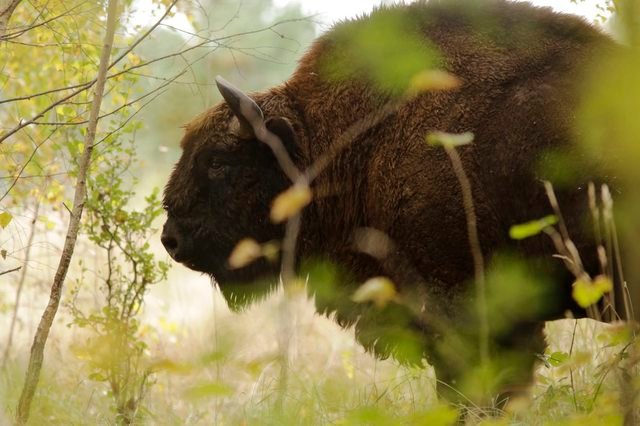Will Legalizing Sales of Rhino Horns Protect the Rhinos?
Over 40,000 species currently appear on the endangered species list, and extinction threatens nearly half of them. In 1973, 80 governments came together for the “Convention on International Trade in Endangered Species of Wild Fauna and Flora.” This would come to be known as the CITES treaty. Today, it applies to about 35,000 species of plants and animals and involves 182 countries.
The intended purpose of the CITES treaty is the protection of these species. In at least some cases, these “protections” are problematic. For instance, the treaty banned the sale of rhino horns, beginning in 1977.

Let's look at an example we are more familiar with - marijuana. When it's prohibited, does that mean you can’t buy it? Of course not. It is still available, but at a much higher price (than it otherwise would have been in a free market, without being heavily taxed). A similar scenario has unfolded with rhino horns. Rhino horn prices have increased substantially, which created a tremendous incentive for poachers to collect and sell them.
South Africa saw this happening, and in 2013 they backed a proposal to legalize the rhino horn trade. In May of this year, South Africa legalized rhino horn trade. The legal battle continues, however, because as of June, this ban is once again in place.
In this article from Benjamin Wiegold, he says:
Although some animal-protection activists no doubt abhor the idea of profiting from animals, making such profits illegal has clearly done nothing to protect those on the endangered list, as it appears that so few of these species will ever be delisted.
He also says:
Since Richard Nixon signed the comprehensive Endangered Species Act of 1973, intended to “halt and reverse the trend toward species extinction, whatever the cost” (emphasis added), only 30 of these 9,000 species have actually recovered, with ten having gone extinct. This gives the Act, enforced by both the U.S. Fish and Wildlife Service (FWS) and the National Oceanic and Atmospheric Administration (NOAA), an abysmal success rate of less than 1 percent despite an average yearly budget of nearly $2 billion.
So will legalizing trade of rhino horns protect the rhinos?
The short answer is no. Not by itself. It is a step in the right direction, but we must embrace free market solutions and property rights to prevent Tragedy of the Commons, and other problems such as Scorched Earth.
Follow me here and look out for Part 2 where I will present a real-life example of how private property rights saved the American Bison from extinction, without the need for government funding.

Sources:
http://reason.org/news/show/property-rights-endangered-species
http://www.endangeredspeciesinternational.org/overview2.html
https://mises.org/library/endangered-species-private-property-and-american-bison
http://www.bloomberg.com/news/articles/2013-07-03/south-africa-backs-proposal-to-legalize-rhino-horn-trade
https://wiki.mises.org/wiki/Tragedy_of_the_commons
http://news.nationalgeographic.com/2016/05/160523-rhino-horn-ban-south-africa-cites-smuggling-john-hume-rhino-ranching-swaziland/
I saw a very interesting strategy in the news recently: A company managed to manufacture a synthetic rhino horn that could not be distinguished from the real thing (keratin isn't exactly a hard compound to acquire or reproduce). Their goal was to flood the markets with the fake horns, driving the supply up and tanking the value placed on poached horns. The gains from poaching rhinos would soon pale in comparison to the cost of being caught doing so, and hopefully deter some of the poaching.
That is such a great idea! Thanks for letting me know about it.
I simply don't understand why people give so much value on their horn.
I mean really : why?
They are beautifull and strong creatures! Why we need their horns ?
Why we need their head on our carpet or wall?
I come from an old fishermen family and there is one saying:
Nature still (even with pollution) provides us with all that we need.
We as a race are greedy...and we need to feel superior over all dominion of Creation.
In my opinion I can say that I agree @shenanigator legalizing is not a solution..furthermore I think that actually they will hunt more if they make it legal...